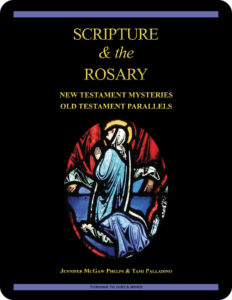Paraclete
 In the Gospel According to John 14:26 (NABRE), we encounter Jesus’ well-known description of the Holy Spirit as the Advocate or Counselor. This view of the Holy Spirit is essential to the Evangelist’s view of the role of the third person of the Most Holy Trinity, so it’s worthwhile to take a closer look at the exact meaning of the Greek word παράκλητος (parakletos) that frequently is translated as Advocate or Counselor.
In the Gospel According to John 14:26 (NABRE), we encounter Jesus’ well-known description of the Holy Spirit as the Advocate or Counselor. This view of the Holy Spirit is essential to the Evangelist’s view of the role of the third person of the Most Holy Trinity, so it’s worthwhile to take a closer look at the exact meaning of the Greek word παράκλητος (parakletos) that frequently is translated as Advocate or Counselor.
This Greek word, which enters English as paraclete, consists of the prefix παρά (para), meaning “beside” or “next to,” and κλητός (kletos), meaning “called” or “invited.” A paraclete literally is “one who is called” or “one who is invited beside.” This word served as a legal term designating one’s defender. The word advocate likewise comes from Latin advocare, “to call to,” another legal term meaning ” defender.”
When Jesus refers to the Holy Spirit as the Paraclete, there are two possible meanings. First, Jesus could be referring to someone called beside us, possibly as a helper. More likely, however, especially in light of the Evangelist John’s tendency to use legalistic language, the legal context is intended. If so, who do you think might be prosecuting us? How is it that the Holy Spirit defends us? What can we do to help the defense build a strong case on our behalf?
related topics: Advocate; holy; inspiration; spirit; dove; Trinity
you also may like our study of Scripture & the Rosary (digital only)
 Scripture & the Rosary: New Testament Mysteries, Old Testament Parallels, a 26-lesson Catholic Bible study with an imprimatur, looks at the biblical foundations of the Rosary. The study includes lessons on Pope St. John Paul II’s Rosarium Virginis Mariae (Rosary of the Virgin Mary), the Apostles’ Creed, and the Luminous Mysteries as well as the original 15 Mysteries of the Rosary. Color photographs of stained glass windows depict key scenes in the lives of Jesus and Mary. Free digital lessons rotate throughout the year on our website.
Scripture & the Rosary: New Testament Mysteries, Old Testament Parallels, a 26-lesson Catholic Bible study with an imprimatur, looks at the biblical foundations of the Rosary. The study includes lessons on Pope St. John Paul II’s Rosarium Virginis Mariae (Rosary of the Virgin Mary), the Apostles’ Creed, and the Luminous Mysteries as well as the original 15 Mysteries of the Rosary. Color photographs of stained glass windows depict key scenes in the lives of Jesus and Mary. Free digital lessons rotate throughout the year on our website.
 Click on the picture of the statue of Moses with horns (above) to learn more about Lost in Translation. A new entry is archived each Monday. Contact us to receive Lost in Translation by email every week. You may use any of the contact links on our website to ask Matthew a question.
Click on the picture of the statue of Moses with horns (above) to learn more about Lost in Translation. A new entry is archived each Monday. Contact us to receive Lost in Translation by email every week. You may use any of the contact links on our website to ask Matthew a question.
